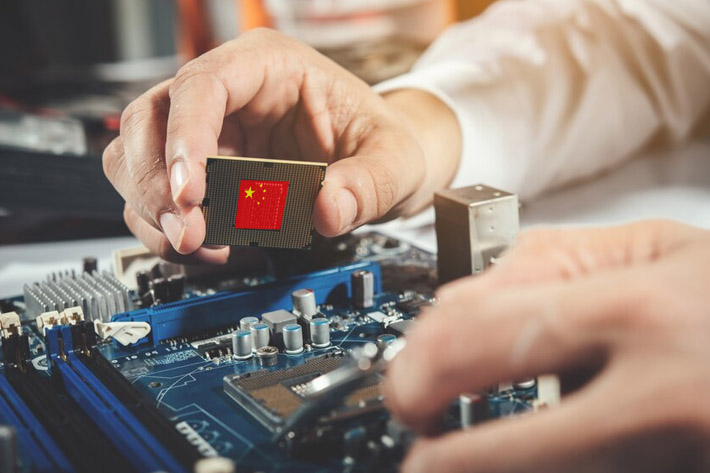Chinese chip companies are hoping to earn billions of yuan from initial public offerings based on an expectation that demand for their products will rise because of US chip curbs.
Moore Threads, which is based in Beijing, plans to raise 8 billion yuan, while MetaX, a Shanghai-based startup, is seeking to raise close to 4 billion yuan – about 12 billion yuan ($1.65 billion) in total via IPOs when they list on Shanghai’s tech-focused STAR market, according to prospectuses filed on Monday.
Their fundraising plans underscore growing efforts by Chinese chipmakers to capitalise on Beijing’s push to develop domestic champions in graphics processing units (GPU), which are crucial for AI development.
ALSO SEE: Thai PM Suspended; Court to Review Case Seeking Her Dismissal
Reuters reported last week that Biren Technology, another Chinese AI chipmaker, raised about 1.5 billion yuan in fresh funding and was preparing for a Hong Kong IPO.
Developing domestic chip champions has become increasingly urgent for Beijing, as the US tightens export restrictions.
Washington’s latest rules implemented in April ban Nvidia’s H20 chips, one of its most popular chips, from being shipped to China.
‘Bans create market opportunities’
The US has also imposed restrictions since last year that prevent Chinese AI chip designers from accessing advanced global foundries like Taiwan Semiconductor Manufacturing for producing cutting-edge semiconductors.
Moore Threads and MetaX both cited US sanctions as a major risk to their development but also emphasised the restrictions could create significant market opportunities.
“US restrictions on high-end GPU exports to China are prompting Chinese companies to accelerate domestic substitution processes,” Moore Threads said. The company was added to the US Entity List in late 2023 and is barred from partnering with TSMC.
MetaX said “geopolitical pressures are forcing relevant domestic clients to use domestically-produced GPU products, which will help domestic GPU manufacturers establish closer ties with local customers and suppliers.”
Steep losses in recent years
The two firms design GPUs to compete with Nvidia products and have reported steep losses over the last three years, which they largely attributed to heavy research and development spending.
Moore Threads generated revenue of 438 million yuan in 2024 but posted a loss of 1.49 billion yuan, adding to losses of 1.67 billion yuan in 2023 and 1.84 billion yuan in 2022.
MetaX posted 2024 revenue of 743 million yuan against a 1.4 billion yuan loss, following losses of 871 million yuan in 2023 and 777 million yuan in 2022.
“Moore Threads and MetaX are both considered leading GPU firms in China, and accessing the capital market in China would be crucial for them to continue their research and development,” said He Hui, research director on semiconductors at Omdia.
China’s drive to achieve higher self-sufficiency in chips would help domestic GPU firms achieve economies of scale, crucial to generating higher revenue and profits, He said.
Both companies were founded in 2020 by executives who previously worked at major US chip firms.
MetaX was founded by former AMD employees, including chairman Chen Weiliang, who previously served as the US chipmaker’s global head of GPU product line design.
Moore Threads was established by former Nvidia employees, including chairman Zhang Jianzhong, who previously held the role of general manager for the AI chip giant’s China operations.
The two firms compete with a growing roster of domestic rivals including Huawei, Cambricon, Hygon and other startups.
- Reuters with additional editing by Jim Pollard
ALSO SEE:
China AI Firm Used SE Asia Data Centre to Beat Chip Curbs – WSJ
China Threatens Legal Action Against Anyone Who Shuns Its Chips
Nvidia and China Tech Giants Hit by Latest US Chip Clampdown
Tariffs on Imported Chips to be Announced Soon, Trump Says
China Tech Giants ‘Ordered $16 Billion of New Nvidia Chips’
China Tech Giants Lift Nvidia Chip Orders Amid Trump Curbs Talk
All Eyes on Nvidia Chips Demand Amid Doubts on AI Outlays
Taiwan, Korea on Edge as Trump Sets Sight on Chip Funding
Bytedance ‘Plans $20 Billion Outlay on AI Infrastructure This Year’
























